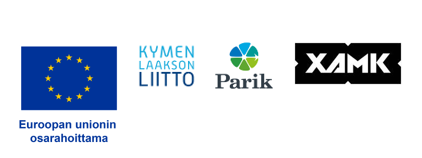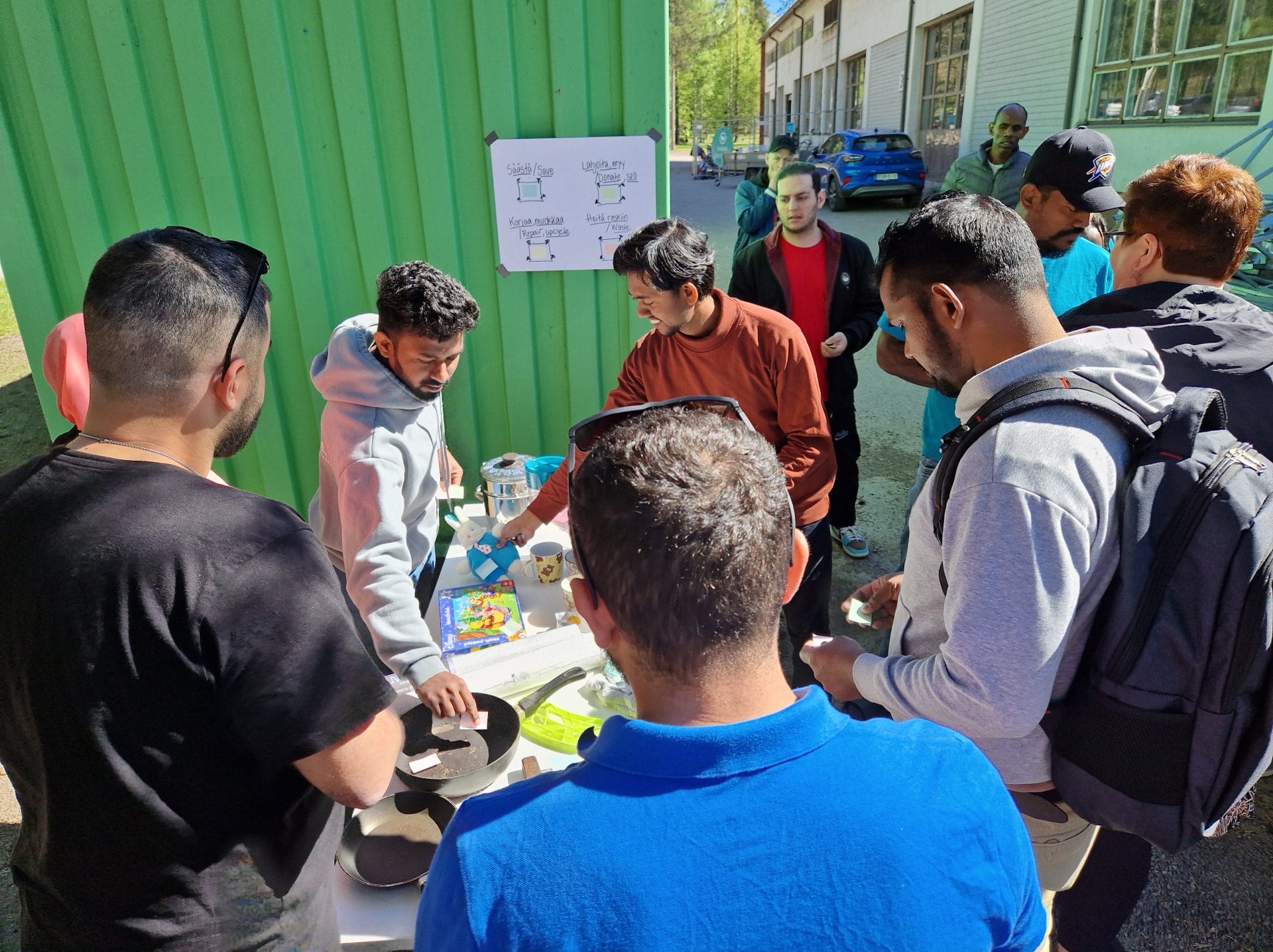Sustainability is Human: Lessons from a Multicultural Workshop
For many newcomers, settling into a new country means navigating unfamiliar systems. That’s why inviting immigrant communities to learn about local circular economy initiatives is not only practical but essential for building an inclusive and sustainable society. This workshop offered a low–threshold opportunity to ask questions, share perspectives, and learn together.
Circular Economy Is Also About Mutual Understanding
The conversations revealed something important: while the ideas of reuse and sustainable choices were familiar throughout everyday life, the terms and the holistic understanding of practices were often unclear. From the social sustainability perspective, the event also highlighted that circular economy is not just about environmental or economic gains–it’s about knowledge, skills, and mutual understanding.
At the same time, there are cultural dimensions to sustainability that often go unspoken. During open discussion, we realized the value of cultural sensitivity. For example, headscarves worn by some Muslim women often contain Arabic text. For those unfamiliar with the language or religion, the text itself should indicate about the religious significance. Another example is a prayer rug that can be reused for the same purpose by others, or it can be used as a wall decoration, but never as a regular rug. Without awareness of cultural nuances, there is a risk that culturally or spiritually significant items could be misunderstood in recycling context.
Universal Traditions And Habits
At the same time, some traditions are surprisingly universal: showing respect for national flags, passing meaningful things down through families, and understanding that some objects carry emotional rather than market value. Similarly, it was clear to the participants that by donating an unneeded product, they were able to help someone else.
In the end, the day reminded us that sustainable development is deeply human. Fostering understanding between cultures, strengthening everyday skills, and building a sense of shared responsibility are just as critical as sorting waste or reducing emissions. Sustainability is holistic–it weaves together ecological, economic, social, and cultural dimensions. In our workshop with multicultural participants, this became especially clear.
The Treasures Lost at the Waste Sorting Station
The workshop was part of the Treasures Lost at the Waste Sorting Station -project, which aims to increase awareness and understanding of sustainable development and the circular economy. Through hands-on activities, community collaboration, and real-life encounters, the project encourages people to reflect on consumption habits, the value of used goods, and the broader impacts of waste. Events like this play a key role in making sustainability tangible and inclusive.
Picture: A Hands-on moment from the workshop: participants reflect on whether items are suitable for reuse or if they should be discarded as waste (Matti Kantoniemi 2025)









